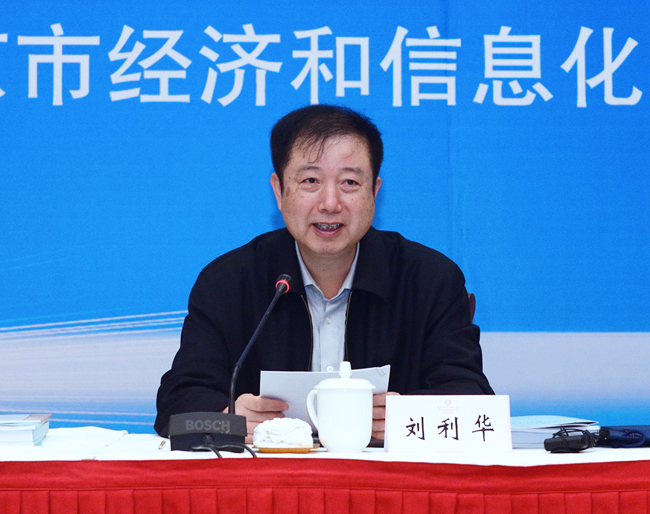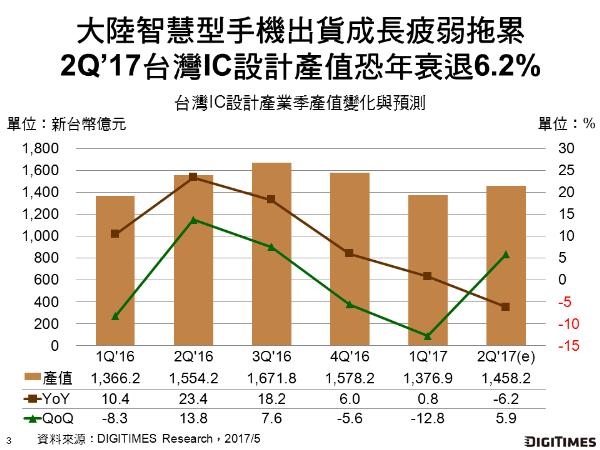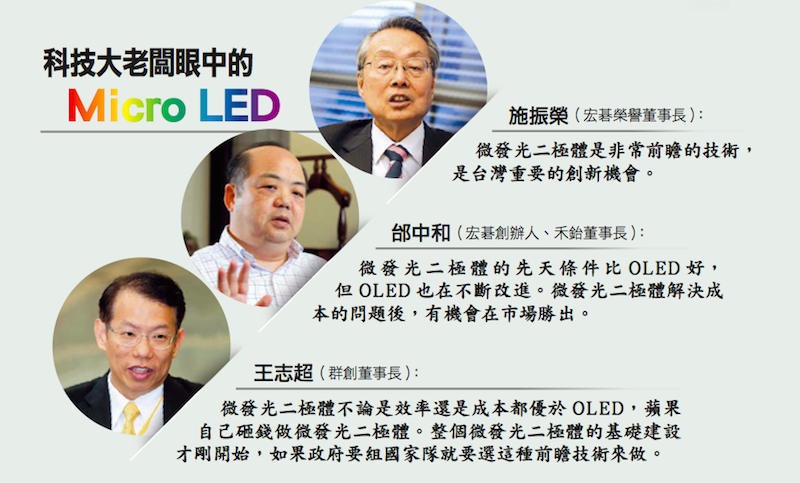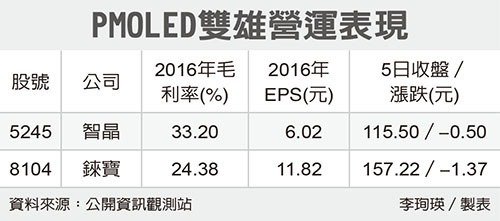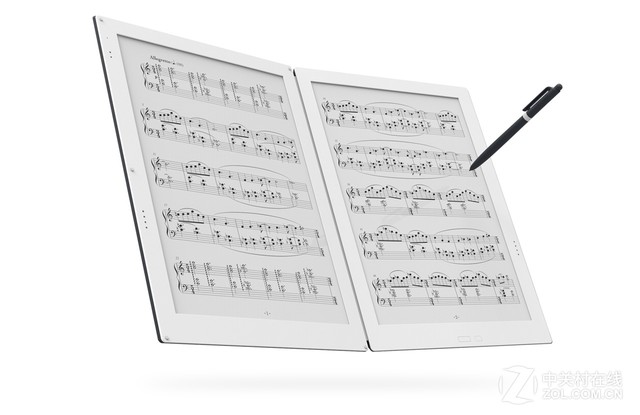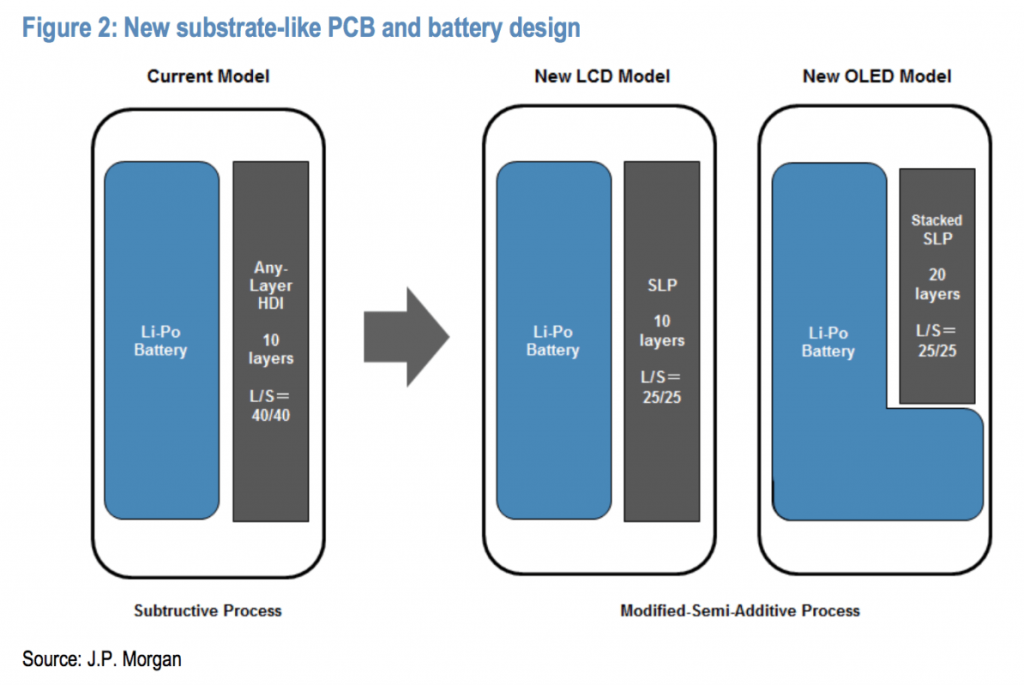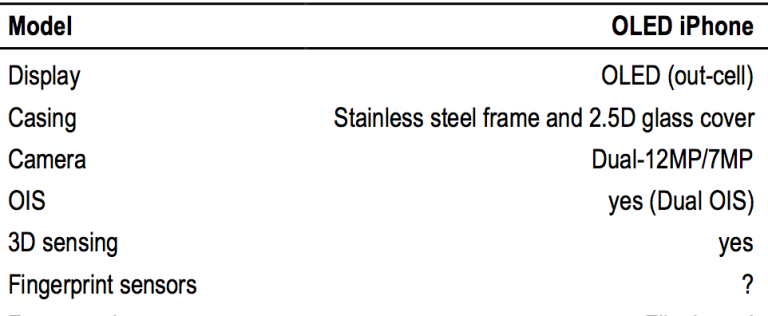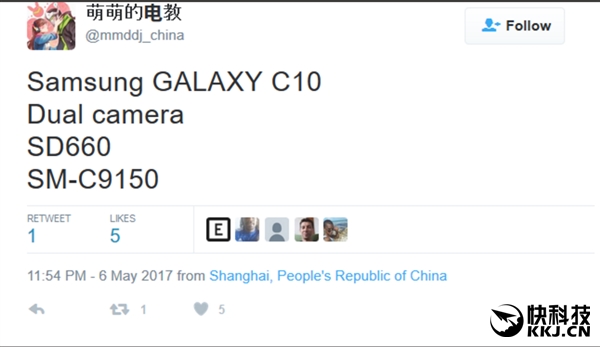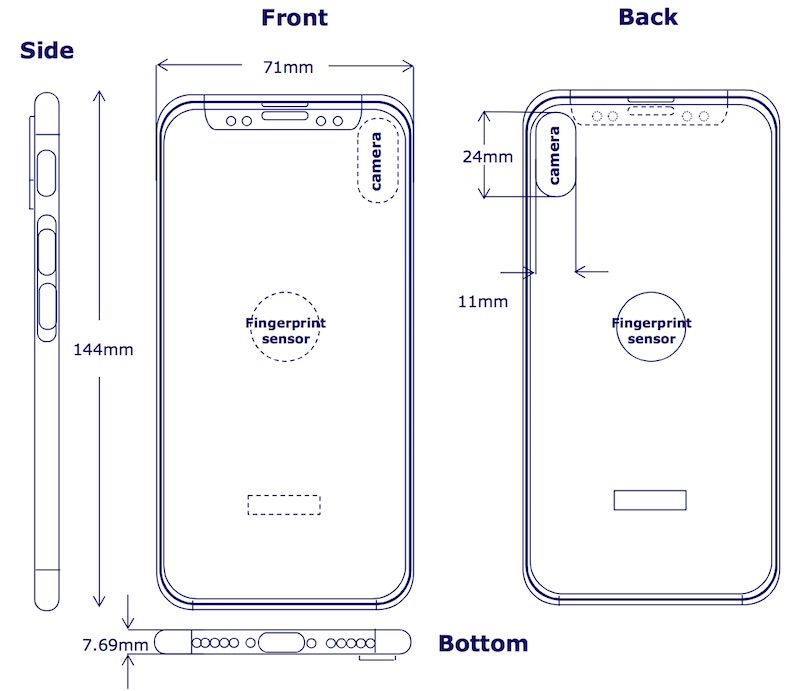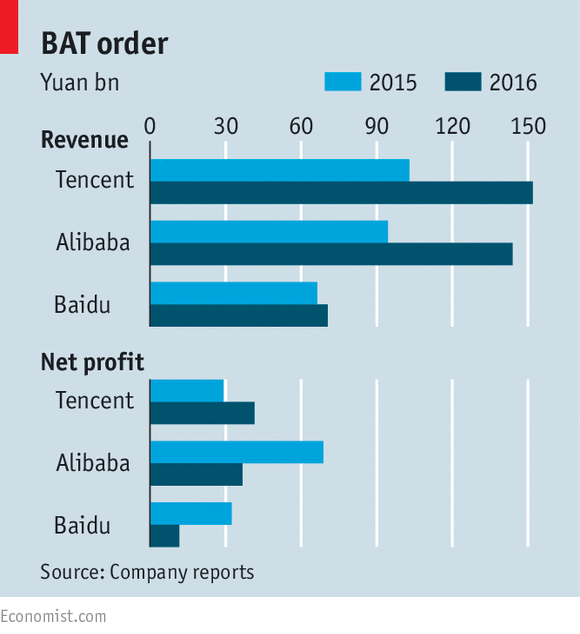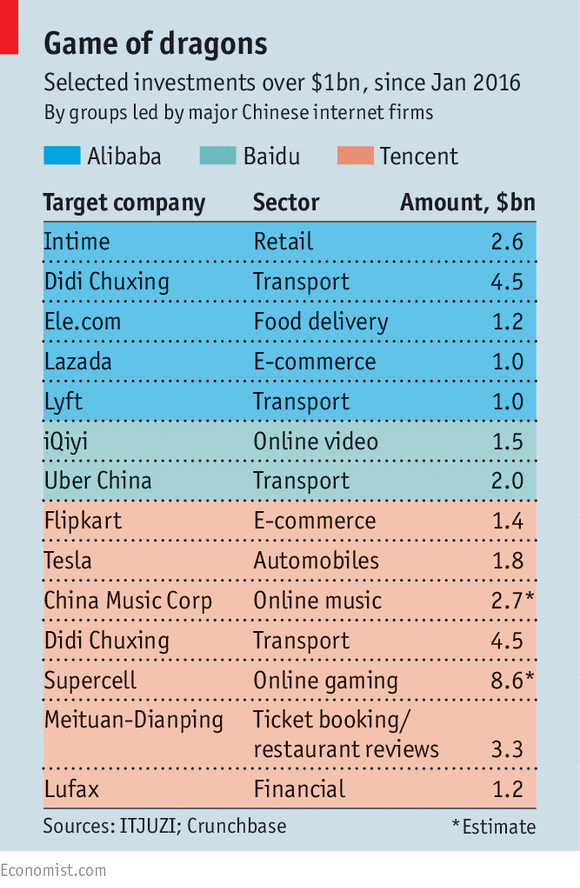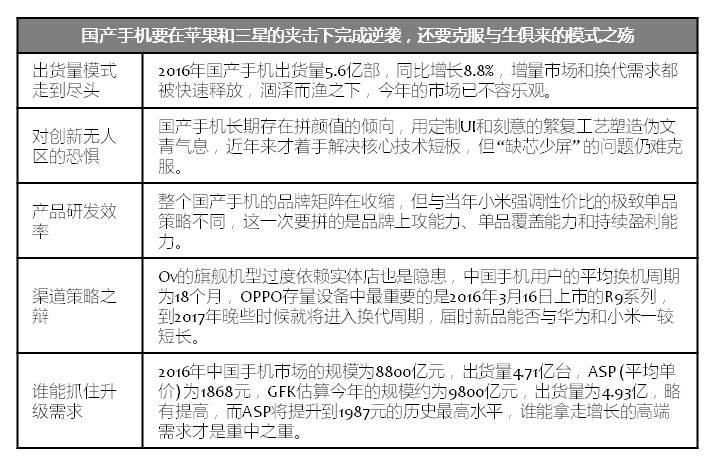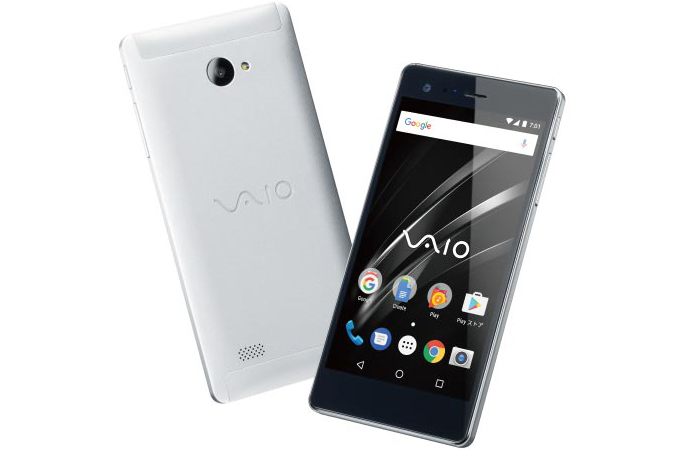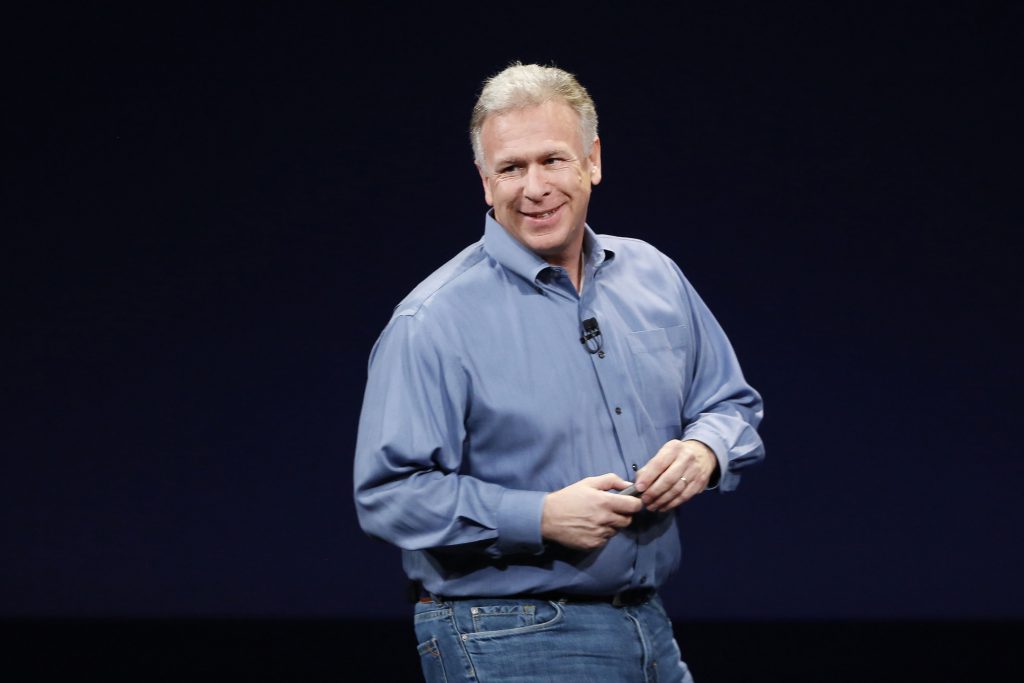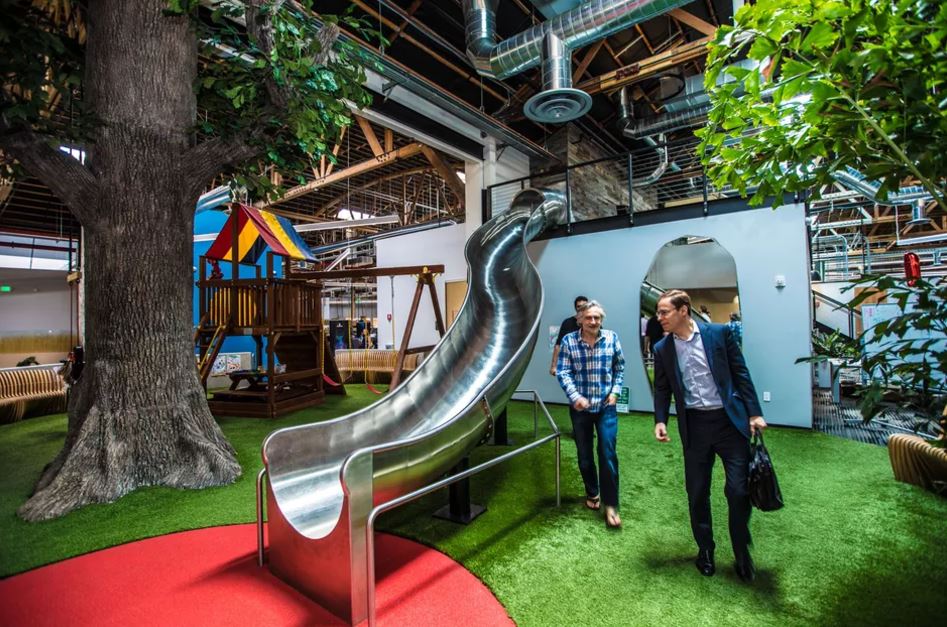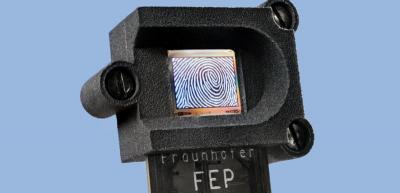
05-08: Japan has launched “minimal fab” aiming for IoT market; TSMC reportedly collaborates with Apple in Micro LED development; etc.
Chipsets
TSMC’s gigafab 12” wafer monthly production can exceed 100K units, and each gigafab costs about NTD300B (about CNY61B). However on 1 Apr 2017, Japan has launched “minimal fab” aiming for IoT market, which demands small quantity and large diversity. It costs only JPY500M (about CNY30M). Minimal fab saves cost, and yearly production is about 500K units. In comparison, traditional 12” fab production is 200M units. (CW, article, SEMI, Laoyaoba)
Qualcomm Snapdragon 835 processor is having some problem causing Samsung Galaxy S8 and Xiaomi Mi 6 automatically restart. As the “restart problem” happens while the phone is being recharged or being plugged in microSD, power management is thought to be the cause. It is thought that this problem could be solved with software updates. (MEM, Laoyaoba)
MIIT’s Liu Lihua indicates that the world first China super computer using local-made CPU can achieve 10BB/s computing power, China-made smartphone CPU market share exceeds 20%, China smart TV SoC reaches 8M units, and smartphone with local-made chipset shipment exceeds 18M units. (52RD, Sohu, CENA, MIIT)
Taiwan-based IC design houses have started to see their customers place short lead-time orders in May 2017, but remain less-optimistic about their outlook for 2Q17. Smartphone demand in China has been slow causing excessive levels of inventory in the supply chain, while the launch of new Android devices has been pushed back. Mass production of the new Android phones is unlikely to kick off until the end of 2Q17. (Digitimes, press, Digitimes)
Touch Display
TSMC reportedly has using the latest packaging technology, collaborating with Apple in Micro LED development. At the same time, Apple also invites UMC’s technical experts to compete with TSMC’s in terms of innovation and efficiency. (Wealth, article, Laoyaoba)
After LCD panel is invading automative display market, PMOLED follows its foodstep. Wisechip and RiTdisplay both have been targeting automative panel market to expand its product market share. (UDN, UDN, Laoyaoba)
E Ink Holdings (EIH) has announced that its Carta e-paper technology has been applied to GVIDO, a dual-screen e-paper digital music score device. GVIDO consists of E Ink Mobius 13.3” dual-screen flexible display made of Carta e-paper. (Digitimes, press, iFeng)
JP Morgan suggests that Apple’s iPhone 7s and iPhone 7s Plus, will have some aesthetic changes compared to the iPhone 7 and iPhone 7 Plus. This includes the transition from aluminium to 2.5D glass backs and the inclusion of wireless charging. iPhone 8 will mesh stainless steel and glass but the 7s chassis will be composed of aluminium and glass; they will retain aluminium sides. It also includes a diagram of the iPhone 8 design with the 5.85” OLED display stretching edge-to-edge on the left and right with top and bottom bezels. (My Drivers, 9to5Mac, BGR)
Camera
The First dual camera smartphone from Samsung is reportedly going to be the Samsung Galaxy C10, which is powered by Qualcomm Snapdragon 660 processor. (Phone Arena, Droidholic, My Drivers, CN Beta)
Sensory
Robert Bosch GmbH has won orders from Apple to supply the next iPhone with some of its motion sensors. It is a potential blow to InvenSense, the main supplier of those smartphone components. Bosch already supplies barometric pressure sensors for the iPhone. (Bloomberg, Laoyaoba, Taipei Times)
Biometrics
CLSA analysts Sebastian Hou and Brian Chen indicate that Apple iPhone 8 still has the Touch ID given security, user-friendliness, and a need for payments infrastructure, but there is a high chance it will be on the back. (Laoyaoba, Mac Rumors, Sohu)
The Fraunhofer FEP has developed a new generation of bi-directional OLED micro-displays that employ an extra-think encapsulation layer, which can turn these new displays into fingerprint sensors. The idea is that the OLED display illuminates the fingers and then the reflected light is used to detect and analyze the fingerprint with excellent accuracy. The prototype sensor has a native resolution of 1,600DPI, which is 3 times more than typically required by the FBI. (OLED-Info, Fraunhofer, Tuxi)
Technical University of Munich has come up with a process that creates a holographic image of a space from the microwave radiation of a Wi-Fi signal bouncing off people and objects. The scientists say their method could be used in automated industrial settings, to track objects moving through a facility, for example. (Laoyaoba, Science Daily, CNET, New Atlas, TM Munich)
Smartphones
Jack Ma, Alibaba chairman, pledges to serve 2B consumers around the world within 20 years. Tencent, which specialises in online games and social media, is now the world’s 10th most valuable public firm, worth some USD275B. Tencent chairman Pony Ma wants China to “preside over the global tech revolution of the future”. Baidu, an online-search firm that came to dominate the mainland market after Google left the country to avoid censorship, is lagging behind. (Economist, article, CN Beta)
Taiwan LCD driver IC suppliers indicate that compared to 1Q17, from Jun 2017 China tier 1 vendors orders are coming back, and bringing some hope to drive the whole supply chain in 2017. The increasing orders are to prepare for traditional peak season 3Q17. Overall, the weak demand in 1H17 will not go through the whole year. (Sohu, Laoyaoba)
Apple is walking at the opposite direction of innovation because it tries to sustain its profit and revenues. However, China vendors have to face the challenges from Apple and Samsung, at the same time needs to tackle some other problems. (Huxiu, press, My Drivers)
VAIO Phone A is launched in Japan – 5.5” FHD display, Qualcomm Snapdragon 617 processor, 13MP + 5MP cameras, 3GB RAM, 16GB NAND flash, Android 7.0, 2800mAh battery, JPY26,784. (AnandTech, VAIO, K-Tai Watch)
Internet of Things
Apple SVP of Worldwide Marketing Phil Schiller has offered his thoughts on dedicated voice assistants like Amazon’s Echo, saying the lack of an onboard screen is a hindrance in many situations. (CNBC, Apple Insider, Laoyaoba, CNET)
A new commodity spawns a lucrative, fast-growing industry, prompting antitrust regulators to step in to restrain those who control its flow. A century ago, the resource in question was oil. Now similar concerns are being raised by the giants that deal in data, the oil of the digital era. Alphabet (Google’s parent company), Amazon, Apple, Facebook and Microsoft are the five most valuable listed firms in the world. Their profits are surging: they collectively racked up over USD25B in net profit in 1Q17. (CN Beta, Economist, article)
Inside what used to be an abandoned Fry’s Electronics warehouse in Palo Alto, California, Andy Rubin, the creator of Android, and three other Silicon Valley veterans are trying their hands at one of the tech industry’s biggest challenges: building hardware. The 4 co-founded Playground Global, a startup “accelerator” in 2015. That is a company that helps nurture young startups by providing support like mentorship, office space, and — in the case of Playground, which works mostly with hardware startups — machinery for prototyping. (Tencent, Laoyaoba, CNET, TechCrunch)
